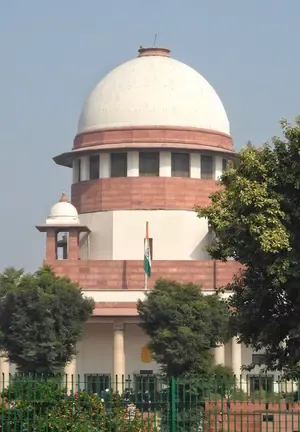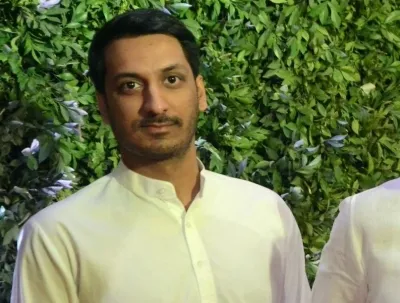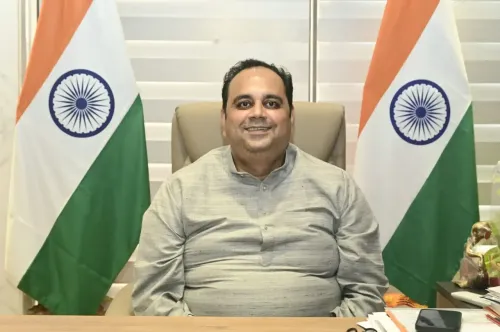Tamil Nadu Attorney Submits PIL in Supreme Court for NEP Adoption in Three States

Synopsis
Key Takeaways
- Public Interest Litigation filed for NEP implementation.
- Legal obligations of states regarding National Education Policy.
- Opposition to the three-language policy by Tamil Nadu.
- Accusations of misrepresentation of the NEP by state leaders.
- Call for linguistic equality and funding fairness for Tamil.
Chennai, March 6 (NationPress) A lawyer from Tamil Nadu has initiated a Public Interest Litigation (PIL) in the Supreme Court, advocating for the execution of the National Education Policy (NEP) across Tamil Nadu, Kerala, and West Bengal.
The Chennai-based attorney, G.S. Mani, lodged the PIL on Thursday, asserting that these states are both constitutionally and legally required to implement the NEP and to finalize the necessary Memorandum of Understanding (MoU).
This legal action arises amidst a heated discussion regarding the perceived imposition of Hindi, along with Tamil Nadu Chief Minister M.K. Stalin’s vehement opposition to the NEP’s three-language framework.
At present, Tamil Nadu adheres to a two-language policy, providing education exclusively in Tamil and English while rejecting the inclusion of Hindi. The state government has accused the central authorities of attempting to enforce Hindi through the NEP.
Nevertheless, Mani argues that such claims are unfounded, arbitrary, and politically driven, contradicting the fundamental right to accessible and effective education. He recognized that while the Supreme Court does not possess the direct power to compel a state government to adopt a policy or sign an MoU, it can offer directives if there are breaches of constitutional provisions or laws.
In those instances, the state could potentially be required to undertake specified actions. The petitioner further emphasized that the NEP does not necessitate the enforcement of Hindi, accusing Tamil Nadu’s leadership of distorting the policy for political purposes.
Chief Minister M.K. Stalin reiterated his disapproval of the NEP and its language guidelines, accusing the BJP-led central government of neglecting linguistic fairness.
Quoting a well-known saying, he remarked: “When you are accustomed to privilege, equality feels like oppression.”
On the social media platform X, Stalin condemned those who label Tamil Nadu’s pursuit of linguistic equality as chauvinistic and anti-national.
He also criticized BJP leaders for questioning the patriotism of the DMK government, despite its historical contributions to national efforts such as the Chinese Aggression, the Bangladesh Liberation War, and the Kargil War.
Further attacking the BJP’s ideological position, Stalin commented: “The very people who glorify Godse’s ideology have the audacity to question the patriotism of the DMK, while their ideological forefather is the one who assassinated ‘Bapu’ Gandhi.”
Stalin maintained that resisting the three-language policy is not an act of linguistic chauvinism. Instead, he asserted that imposing a language on individuals fosters division and undermines national unity.
He characterized “Hindi zealots” as those who view their linguistic privilege as natural while dismissing Tamil Nadu’s opposition as treason. In a pointed criticism of the Centre, he stated:
“Chauvinism is naming the three criminal laws that govern 140 crore citizens in a language that Tamils cannot even pronounce or comprehend by reading. Chauvinism is treating a state that contributes the most to the nation as second-class citizens and denying its fair share for refusing to swallow the poison called NEP.”
On Wednesday, Stalin also challenged the BJP’s assertions of supporting Tamil, highlighting that the actions of the Union government contradict its claims.
“If the BJP’s claim that our Hon’ble PM has great love for Tamil is true, why is it never reflected in action?” he queried in a social media post.
He urged the Centre to implement concrete measures rather than relying on symbolic gestures, such as the installation of the Sengol in Parliament.
“Rather than installing Sengol in Parliament, uninstall Hindi from Union government offices in Tamil Nadu. Instead of hollow praise, make Tamil an official language on par with Hindi and allocate more funds for Tamil than for a dead language like Sanskrit.”
Stalin underscored funding inequalities, pointing out that despite having eight crore speakers, Tamil receives only Rs 74 crore from the Union government, whereas Sanskrit, spoken by only a few thousand, is allocated Rs 1,488 crore.









